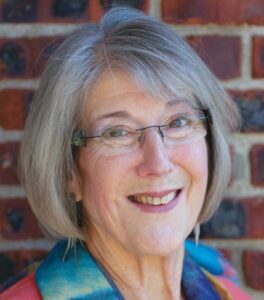Prayer For Regret

Prayer for Regret
When my mother-in-law, Bubbie, died, I said to Bill, “Bubbie was such a big part of your life. I’m surprised you don’t talk about her more.” Bubbie was my best friend,” he replied,“but nothing was left unsaid or undone.” I thought to myself, “How lucky he is. When it comes to people we love, how many of us have no regrets?
My mom died when I was 27. She was sick for a long time, and we knew the end was near. My brothers and I were with her earlier in the evening and then went home. Around midnight, I got a call from her doctor telling me she would likely die in the next few hours. For reasons that seemed clear to me then, but which seem unconscionable now, I did not call my brothers. I wanted to be alone with my mom when she died.
When I arrived at the hospital, she was unresponsive. For the next two hours, I sat next to her in silence, and when I saw her chest stop moving, I called in the nurses and doctors, and they pronounced her dead. I went home and called my brothers.
My brother Michael asked, “Did you speak to mom while you sat there next to her?” “No,” I said. “She was unconscious.” “You should have talked to her,” he said. “People who appear unresposive can often still hear and understand what is said to them.” I felt awful. My mom didn’t die hearing me say that I loved her. Intellectually, I know she would have said, “Honey, don’t worry, it’s fine.” It didn’t matter. For decades, I kept that feeling of regret and disappointment.
Forty years later, my son-in-law Matt was in a hospice dying of stomach cancer, at age 41. His family had spent the day with him and gone home for the night. My daughter Arwyn and I were alone in the room. Although Matt was no longer conscious, we continued talking to him and as he took his last breaths, he heard that we loved him.
I’m not a spiritual person, but that night I felt like God had given me a second chance, a chance to get it right, to do for Matt what I did not do for my mom. After Matt’s death, I let go of my regret and stopped ruminating about my mom’s death. For 40 years, I was estranged from my brother, Michael. Like most instances of family estrangement, the ostensible cause wasn’t the real cause; we’d had a bad relationship for years. So it’s not surprising that when mom died, we argued over what would happen to her things. There were things I wanted — all of which I got — and things I didn’t care about. Yet, I still cared about what he got. I was convinced he would not take care of my mom’s things. We had words, and then we had more words. Then X happened at my wedding, and Y happened two years later, and soon, we had no relationship. Occasional, rare phone calls reinforced my position that there was no bond I felt or wanted.
Several years ago, a friend told me the story of two former prisoners. Both had suffered horribly in confinement. One prisoner told the other that he had forgiven his jailors, the other said he would never do that. “Then you are still a prisoner,” the first prisoner replied. Just like that, I decided to end the estrangement. It wasn’t a question of forgiveness. I had spent 40 years of my life angry at Michael. It was time to move on.
And so I visited him. During that visit I learned many things. I learned the blue sofa I was sure he wouldn’t take care of was still in his living room, cared for and covered by my one of my mom’s crocheted Afghan. I wouldn’t have kept that 9 foot 50-year-old blue velvet French provincial sofa. I would have gotten rid of it. Although very different in our approaches, Michael and I have both been good stewards of our mother’s treasures.
Although Michael and I are now reconciled, we don’t have a close relationship — we are very different people and there is a lot of water under the bridge. Yet, I no longer feel anger, and have in its place, sadness, humility and surprisingly…gratitude. Contacting Michael was awkward. I could have continued the estrangement, but I’m glad I didn’t. I’m grateful that I reached out.
In his book, The Power of Regret, Daniel Pink describes two types of connection regrets: closed door regrets and open door regrets. Closed door regrets are ones we cannot fix, because the person nis no longer alive. Open door regrets are ones we can fix, but often don’t because it’s too uncomfortable, too awkward. Each type of regret, says Pink, offers us lessons. The lesson of closed door regrets is to do better next time. Because of the closed door regret about my mom, I did better for Matt. The lesson of open door regrets is to do something now. If a relationship you care about has come undone, place the call, make the visit, push past awkwardness and reach out. I reached out to Michael, and I’m so glad I did.
May we all transform regret into reaching out and doing better.

0 Comments